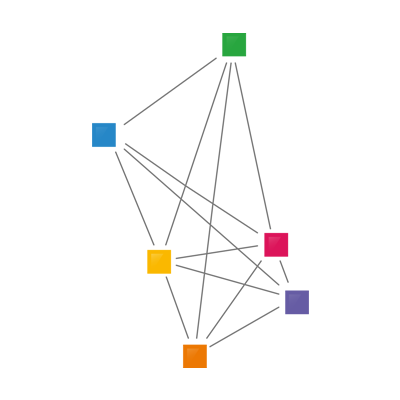Digital economy and society
5 Apr 2019 12:00h - 13:00h
Event report
[Read more session reports and live updates from the 2nd Western Balkan Digital Summit]
Ms Lejla Sadiku (Governance and Innovations Specialist, UNDP Regional Bureau for Europe and Central Asia) moderated the session.
Ms Odeta Barbullushi (Deputy Minister of Foreign Affairs, Albania) said that the crucial question that needs to be answered is ‘What sort of society and economies in the region do we want?’ Digitalisation of economy and society is in close connection to the rule of law, as well as the relations within the region. She noted 3 key pillars:
-
Digitalisation helping strengthen government
-
Digitalisation helping societies be more inclusive
-
Connectivity
She gave an example of how digitalisation is creating a new public sphere, when she remembered seeing a group of refugees gathering in front of an Apple store because they had free Internet access there. She emphasised the importance of investing and focusing on skills, access, and services for citizens.
Mr Mihailo Jovanović (Director of the Office for Information Technologies and eGovernment, Government of the Republic of Serbia) said that digitalisation is the priority for the Republic of Serbia. One of the first steps of the new government was the creation of the national open data portal, followed by the Law on Electronic Administration which defines the structure and the obligation of the authorities to open data. Open data in Serbia is a legal obligation, and it supports transparency, fights corruption, but is also important for startups and IT companies. The government of Serbia created competitions and gave grants to those who are opening their data. Those who gave the best solutions and ways to solve problems with open data were named champions of open data. Jovanović noted that the government did everything in its power in one year to promote open data and entrepreneurship, and had put innovation into the focus. He said that the key answer for advancing lays in regional collaboration.
Mr Slaviša Lečić (Customer Solution Advisor for S/4HANA at SAP CEE) said that there are 3 main segments for managing organisation: people, processes, and data. The main challenge is different kinds of data that needs to be generated, especially those generated from IoT. Merging all those data is a great challenge. Lečič said that there is a need for the next level of automatisation. They are also focusing their work on children and work closely with faculties. When it comes to the IT sector, he said there is evident progress in this field.
Mr Jovan Despotovski (Director at MKD Innovations and TD Fund, Republic of North Macedonia) said that is important to move beyond political promises but to actually do what has been promised. There is a great need to promote digitalisation more at the national, but also at the regional level. Public procurement regulation is important in order to become more efficient. In order to improve services, it is crucial to identify processes and solutions, as well as to include startups in the process.
Ms Suzana Pribilović (Minister of Public Administration, Government of Montenegro) said that open data is moving changes in the society and public administration. Users are being proactive by saying that they do need open data. The goal is to have open data in formats which would be of use for everyone, especially representatives of medium and small businesses. This year, a hackathon will take place with the aim to connect people and businesses. Pribilovic shared the idea of having a regional platform operating under certain standards where open data would be available for everyone. That would be a generator of changes and would show material and other values of open data. She said that success will be complete for both open data and operability once papers are eliminated entirely and the exchange is done only through the system.
By Aida Mahmutović
Related topics
Related event

